Travel destinations Comments: 0 Feb 27, 2024
A city on a grain of salt, as the people of Tuzla say about their town, was built on the area of the old Pannonian Sea, possibly even in the younger Stone Age. Artifacts indicate that this city is one of the oldest and longest inhabited locations in Europe.
The name of the city has always been linked to salt: Castron de Salenes, translated from Greek - the city of salt pans, and the following names have a similar translation: Ad Salinas, from Latin; Soli, from South Slavic; Memlehatejn, from Arabic; Memleha-i Zir , from Persian; Tuz, from Turkish, from where the present name Tuzla comes, which in Turkish means salt pan. Also, the name of the river Jala, which flows through Tuzla, comes from the Greek word meaning salt.
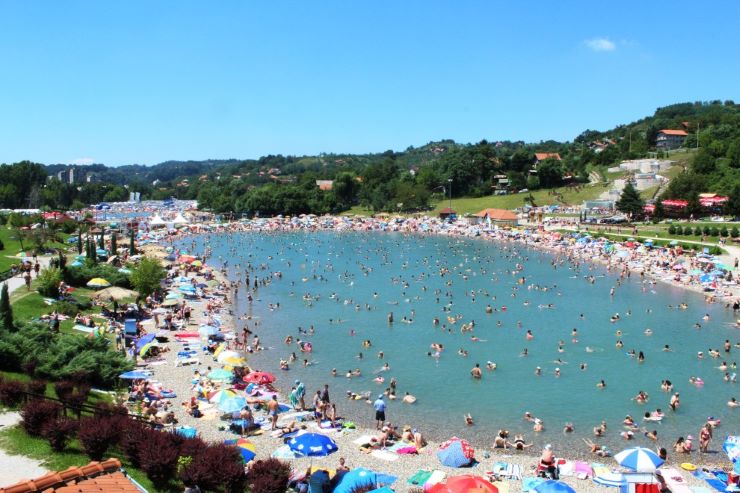
When, several million years ago, the Pannonian Sea retreated from European soil, several million tons of rock salt and salt water deposits remained under Tuzla. Salt from Tuzla was known outside of Bosnia. The French king Louis XIV used his merchants to procure salt from Tuzla for his court as early as the 17th century. The first salt factory, built in the suburbs of Tuzla, in Simin Han, in 1885, represented the beginning of industrial salt production in Tuzla.
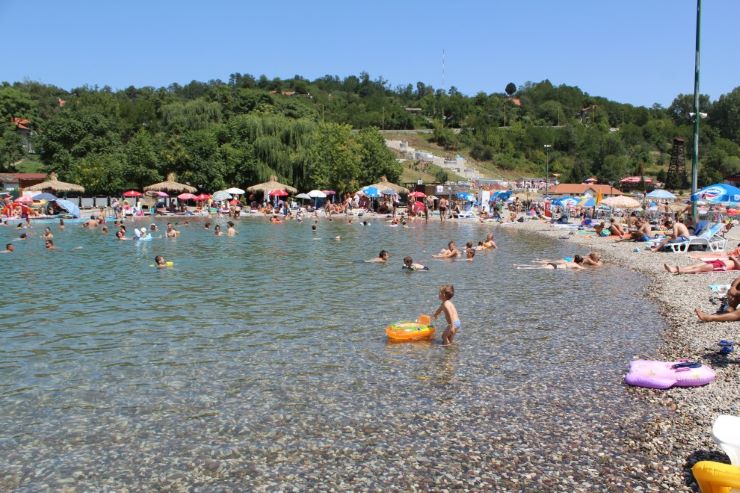
The complex of Pannonian salt lakes, located in the very center of the city, consists of three lakes of different sizes and depths, and Salt waterfalls. As part of the Pannonian Lakes complex, there is an Archaeological Park, a Neolithic-Sojenica settlement and Museum, a geological exhibition "Pannonica", a children's amusement park, sports fields, and many other catering, cultural and entertainment facilities. The tourist organization of Tuzla counts several million visitors. It is worth knowing that, in addition to the pleasure of bathing in salty Pannonian water, it also has medicinal properties, especially in the treatment of sterility, rheumatic and respiratory diseases.
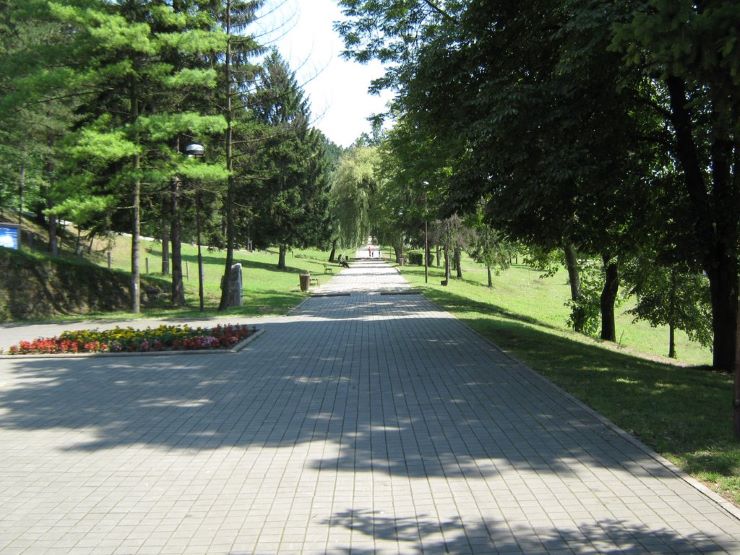
Tuzla's salt waterfalls are unique to this area: an open-air inhalation health center. It is an installation with five cascades and two swimming pools where inhaling salt water vapor is very beneficial for relaxation from stress, diseases of the respiratory organs, headaches and general improvement of health, and a massage with water falling from the waterfalls is also possible.
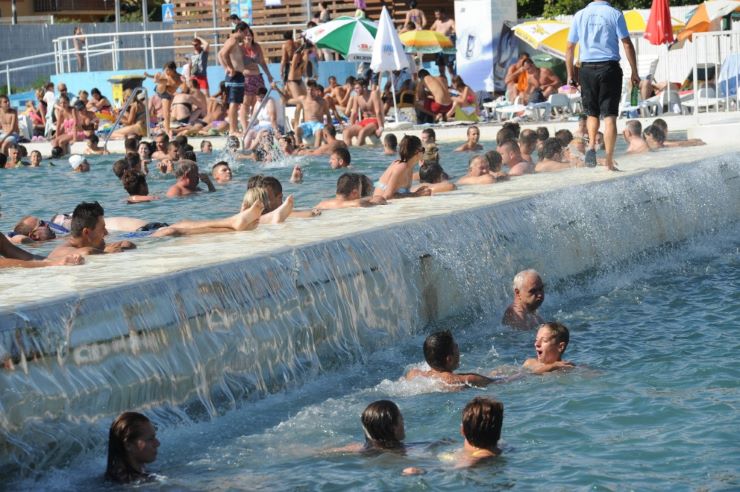
Especially for younger visitors, the attraction of the complex are two water slides. For the elderly, outdoor fitness centers are just as attractive. The tourist offer is enhanced by the novelty of technology, a solar tree that offers visitors the opportunity to charge mobile phones, tablets and other electronic devices for free.
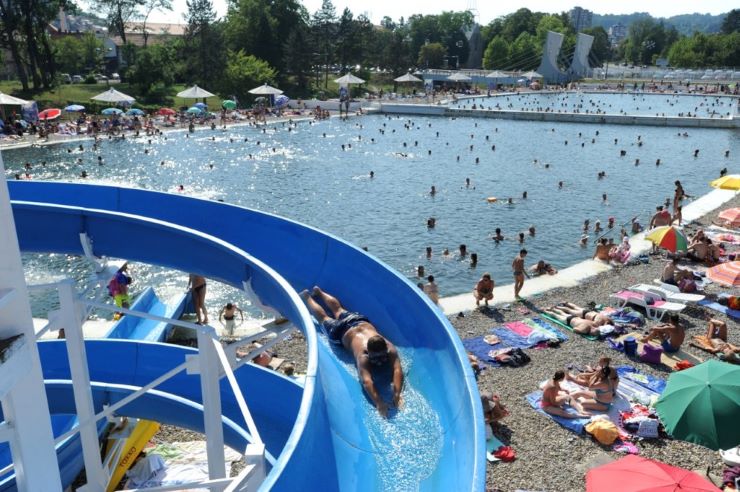
Freedom Square in Tuzla is the largest square in Bosnia and Herzegovina, and on its premises is a reconstructed Baroque building from the Austro-Hungarian period. The space is arranged for socializing and various events, and it is decorated with a central fountain, the outer walls of which are decorated with steciak ornaments, the Carsija mosque and a fountain from the era of Ottoman rule.
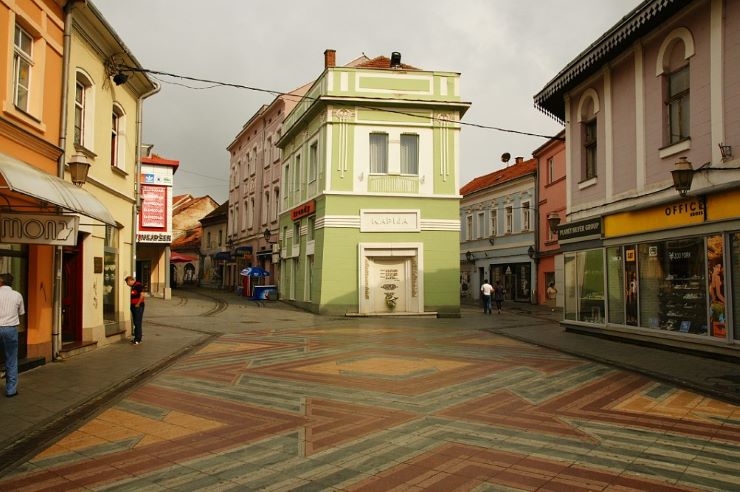
Tuzla is located in the northeastern part of Bosnia and Herzegovina, on the slopes of the Majevica mountain, at an average altitude of 239 meters. The favorable geographical position enables Tuzla to have good connections with other regions in Bosnia and Herzegovina, as well as with neighboring countries, Croatia and Serbia and Montenegro, but also with the regions of South-Eastern, Central and Western Europe. As it is located near several highways and other major cities, a bus ticket will easily take you to Tuzla.
Keep in mind that, for a family that wants to relax by the salt water of Tuzla, a return bus ticket is valid for 30 or more days, and that Tuzla can host a large number of people in extremely well-presented tourist offers. To get to Tuzla, consult the busticket4.me portal and the bus schedule for Tuzla.
As an agency whose activity is the online sale of bus tickets, we offer you departures for the following destinations:
Photos are taken from the Touristic organization of the city Tuzla official website.


 RS
RS  ME
ME  HR
HR  BA
BA  RU
RU  MK
MK  AL
AL  ES
ES  DE
DE  IT
IT  CN
CN  NL
NL  SE
SE  FR
FR 

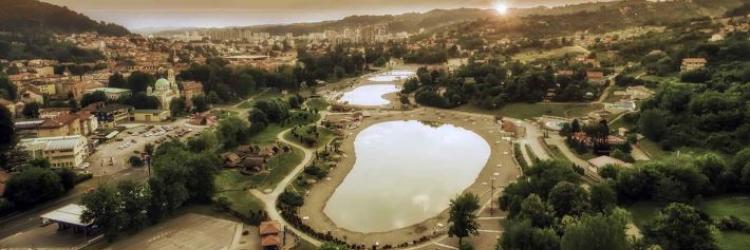




Write a comment